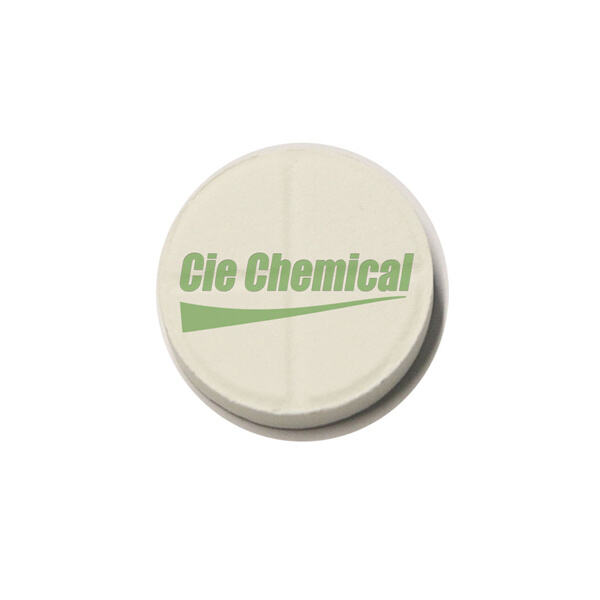How do plants grow taller anyway? A special hormone called GA3 (Gibberellic Acid) is one of the secrets behind their growth. GA3 is a special growth chemical that ensures any plant that makes it to the ground grows larger, faster and more robust than it would under natural circumstances. So at CIE Chemical, we are finding it extremely interesting to learn more about how GA3 could revolutionise farming for the better and improve our food output.
Discovery of GA3 in JapanIn 1938, a Japanese scientist named Eiichi Kurosawa discovered GA3. Scientists have subsequently worked to understand the effect of GA3 and its role in growth regulation. GA3 is a natural hormone present in plants to regulate their growth. Scientists can also produce GA3 in the lab, enabling a range of applications under controlled conditions. GA3 triggers intracellular events that unleash the plant's potential for growth.

But how does GA3 stimulates plant growth exactly? GA3 induces expression of genes responsible for growth and development when it is applied to plants. That activation commands the cells within the plant to expand, thereby causing an increase in height for the overall plant. GA3 can also help seeds germinate and promote fruits to form on some types of plants besides getting plants bigger. This means that people can change how tall plants grow, how much food they make and even encourage flowers to bloom more beautifully by adjusting the levels of GA3 in plants.

GA3 is a plant growth regulator that enjoys extensive use in the agriculture sector for cultivation and propagation. When it comes to agriculture, on the other hand, GA3 can be used to help increase the yield or amount of food produced from staple crops such as wheat, rice, and maize. It can also accelerate plant growth and develop quickly, making it beneficial in regions having a shorter growing season with lesser time for the plants to mature. Farmers and gardeners apply GA3 to help with propagating, or growing new plants, using cuttings. This is a very typical and popular method for propagating plants. If the cutting is treated with GA3, it promotes root development and thus allows the plant to perform well in its new environment.

The rapid emergence of GA3 as an important tool within farming and agri-business. Farmers can use GA3 to grow more food, which we all know is major for feeding humans around the world. In addition, it safeguards plants against the harsh weather and other environmental stressors. GA3 also boosts the quality of crops and making them healthy and tasty. Fraction of this suggests that one more advantage offered, and the reason why worldwide growing GA3 has come to be popular is its potentiality to limit awful chemical compounds like pesticides and herbicide which are used in safe guarding plants. This improves farming to be more sustainable for the planet and therefore helps keep our planet healthy. Here at CIE Chemical, we genuinely believe that GA3 is part of the key to sustainable agriculture — farming that offers even greater environmental protection for future generations. We resolve to continue researching & developing novel applications for this versatile chemical.
The pesticide products we sell comply with relevant national regulations and standards. Ensure the reliability and stability of product quality.1. Pre-sales consultation: We will provide customers with professional pre-sales consultation services to answer their questions about the use, dosage, storage and other issues of clothing and medicine. Customers can get our help by phone, email or online consultation before purchasing.2. After-sales training: We will regularly organize pesticide use training, including the correct use of pesticides, precautions, protective measures, etc., to improve customers' pesticide use skills and safety awareness.1/33. After-sales return visits: We will conduct regular after-sales return visits to our customers to understand their usage and satisfaction, collect their opinions and suggestions, and continuously improve our services.
Shanghai CIE Chemical Co.,ltd. was established on November 28, 2013. CIE has focused on chemical exports for about 30 years. At the same time, we will be committed to bringing more good products to more countries.In addition, our factory has an annual production capacity of glyphosate of approximately 100,000 tons and acetochlor of approximately 5,000 tons. In addition, we also cooperate with some multinational companies to produce paraquat and imidacloprid. Therefore, our quality is world-class.Currently, the dosage forms we can produce include SL, SC, OSC, OD, EC, EW, ULV, WDG, WSG, SG, G, etc. At the same time, our R&D department is always committed to the development of new formulas to produce some blended chemicals according to market needs. In this way, the efficiency of our new products can meet the needs of end consumers around the world.We always see it as our responsibility.In addition, so far, we have supported the registration of more than 200 companies in 30 countries around the world. At the same time, we are doing GLP reporting for some products.
1. Increased output:Pesticides can effectively control pests, diseases and weeds, thereby reducing pest levels, increasing yields and ensuring food security.2. Save labor and time:The use of pesticides can reduce farmers’ labor and time costs and effectively improve agricultural production efficiency.3. Guarantee economic benefits:Pesticides can prevent AIDS, ensure harvests, and be used in agricultural production brought brilliant economic benefits.4. Ensure food safety and quality:Pesticides can ensure the safety and quality of grain and food, avoid prevention prevent the occurrence of epidemics and protect people's health.
In the world of CIE, you will find excellent agrochemical manufacturing and technical services because we focus on chemicals and researching new products for the people of the world.At the beginning of the 21st century, our factory only focused on national brands. After several years of development, we began to explore international markets, such as Argentina, Brazil, Suriname, Paraguay, Peru, Africa, South Asia, etc. As of 2024, we have established business relationships with partners from more than 39 countries. At the same time, we will be committed to bringing more good products to more countries.